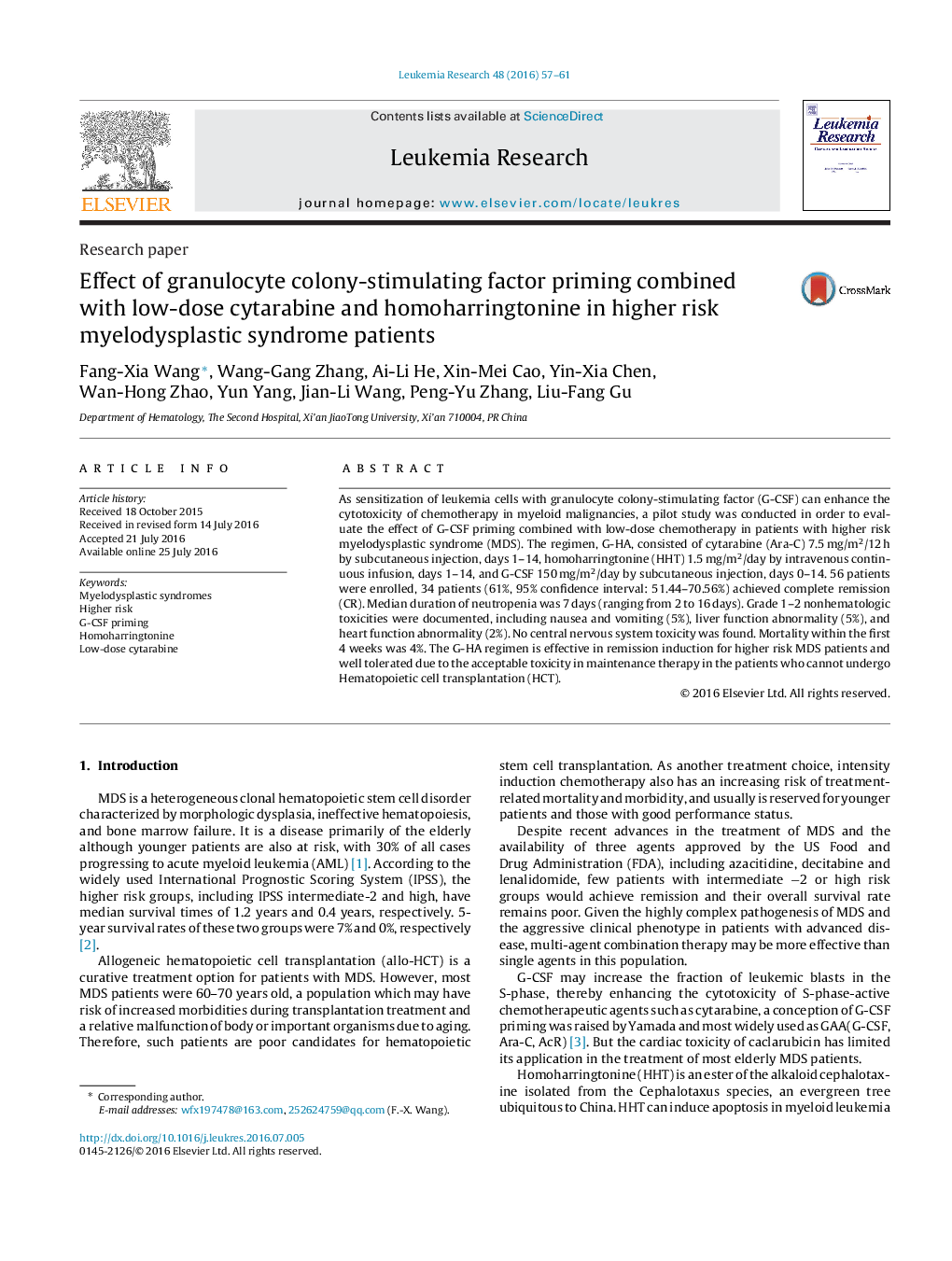| Article ID | Journal | Published Year | Pages | File Type |
|---|---|---|---|---|
| 8453454 | Leukemia Research | 2016 | 5 Pages |
Abstract
As sensitization of leukemia cells with granulocyte colony-stimulating factor (G-CSF) can enhance the cytotoxicity of chemotherapy in myeloid malignancies, a pilot study was conducted in order to evaluate the effect of G-CSF priming combined with low-dose chemotherapy in patients with higher risk myelodysplastic syndrome (MDS). The regimen, G-HA, consisted of cytarabine (Ara-C) 7.5Â mg/m2/12Â h by subcutaneous injection, days 1-14, homoharringtonine (HHT) 1.5Â mg/m2/day by intravenous continuous infusion, days 1-14, and G-CSF 150Â mg/m2/day by subcutaneous injection, days 0-14. 56 patients were enrolled, 34 patients (61%, 95% confidence interval: 51.44-70.56%) achieved complete remission (CR). Median duration of neutropenia was 7Â days (ranging from 2 to 16Â days). Grade 1-2 nonhematologic toxicities were documented, including nausea and vomiting (5%), liver function abnormality (5%), and heart function abnormality (2%). No central nervous system toxicity was found. Mortality within the first 4 weeks was 4%. The G-HA regimen is effective in remission induction for higher risk MDS patients and well tolerated due to the acceptable toxicity in maintenance therapy in the patients who cannot undergo Hematopoietic cell transplantation (HCT).
Related Topics
Life Sciences
Biochemistry, Genetics and Molecular Biology
Cancer Research
Authors
Fang-Xia Wang, Wang-Gang Zhang, Ai-Li He, Xin-Mei Cao, Yin-Xia Chen, Wan-Hong Zhao, Yun Yang, Jian-Li Wang, Peng-Yu Zhang, Liu-Fang Gu,
